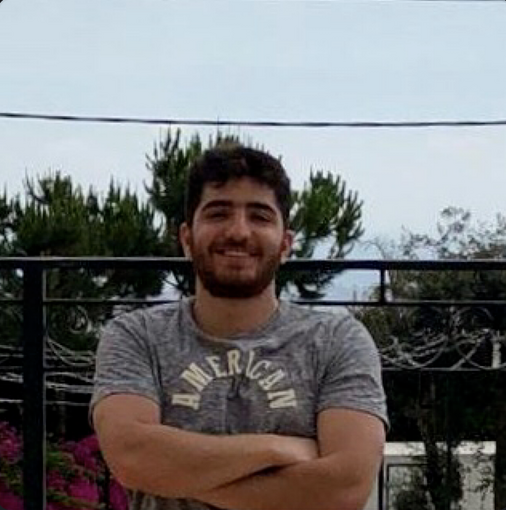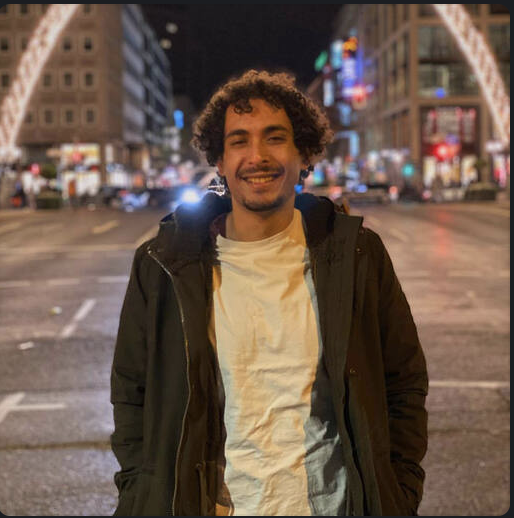
trivago is the home to 500+ tech specialists from all corners of the globe – each with their own unique background and story of how they ended up here. Our trivago Tech Check-in series focuses on individual engineers’ experience during their time at trivago. In this edition, you’ll meet Mohammad Abed – a frontend software engineer who has been with trivago for 11 months now and is working on our Express Booking product.
Hey Mohammad! Can you give us a bit of background on where you’re from and how you ended up here? What’s your story?
I am half Palestinian and half Lebanese, but I was born and raised in Beirut, Lebanon. I studied computer and communication engineering at the American University of Beirut, and graduated in 2018. Until 2020, I was working as a frontend engineer at a networking startup in Beirut. Two years ago, I decided that I want to travel and experience working abroad, and Germany was on the top of my list. The job search began, and I found a trivago ad on LinkedIn for a JavaScript engineering role. At first I was surprised because I did not know that trivago was a tech company. After reading the job description and checking life at trivago (which you should definitely check out) on social media, I immediately knew that this is the place I want to work. I applied for the job and the rest is history.
Can you explain your job in a not-so-serious way?
I spend hours everyday trying to put colours and shapes together on a screen. While doing that, I make sure to smash every keyboard key as hard as I can.
What are you most excited about and/or scared of when starting your work day?
I am very excited about the product that I am working on. I love seeing how every small change we make gets perceived by millions of users every day. I am also excited about the technology stack we are using. I really love working with React. It lets you build rich user interfaces quickly by developing declarative components. React also has very strong community support, which makes it easy to get help when facing any problem.
While not being particularly scared of anything, I believe that, after being at trivago for 11 months, there is still a lot to learn about the product in specific and the travel industry in general.
MacOS or Linux? Which do you feel more comfortable with when it comes to implementing code?
I use MacOS for my day to day work. MacOS is based on Unix, which means that you get a terminal with all the well-established and convenient commands.
As a frontend developer, testing a feature on multiple browsers is very important, and MacOS supports multiple browsers like Safari, Chrome, Firefox and Microsoft Edge. It also has a polished user interface and also supports multiple desktop applications which we use on a daily basis such as Zoom, Slack, Dropbox and much more.
What keeps you motivated to keep working as an engineer?
Having a clear path that shows how to level up in my career is a great motivation for me.
At trivago, I am given a lot of learning opportunities to work on my soft and hard skills. From online learning platforms to internal talks, presentations and mentoring programs, I have all I need to develop in different areas and acquire new skills.
What surprised you most about working at trivago?
As a trivago newbie, I was truly amazed by the campus in Düsseldorf. I have seen it in a couple of YouTube videos, but it looks nicer and bigger in person. What I like most about the campus are the different themed meeting rooms. Those are great for when you have a meeting and you want a change of scenery.
I was also surprised by how friendly, open and approachable everyone at the company is. If you need help with anything, people will not hesitate to offer their help. You can message anyone in the company, and no matter their position, they will always make sure to give you time and answer you back.
What do you like about trivago’s engineering culture?
There are a lot of things that I like about trivago’s engineering culture.
First, I think that it is a culture of continuous development and knowledge sharing. Weekly guild meetings give engineers the opportunity to share what they are working on, thus taking pride in their work and also getting to know more about what others are up to.
In trivago, everyone has an equal opportunity to propose new ideas and provide solutions for problems. Everyone strongly believes that the best answer wins, and most importantly that it can come from anyone.
Would you describe yourself as breadth-first or depth-first when it comes to your profession? Or would you describe yourself as a T-shaped person?
I would describe myself as depth first. When I am interested in a topic, I tend to dive deep into learning the inner workings and what’s happening behind the scenes. Right now, as a JavaScript engineer, I am focused on learning about more advanced topics related to functional programming, accessibility, and Next.js.
In the near future, I would like to learn more about backend development and CI/CD.
Are you involved in your local tech community? If so, how?
Back in Lebanon, I used to attend tech talks and presentations by people working in local tech companies. In 2020, I was actively contributing to open source projects. One of the projects that I enjoyed the most was a platform to help rebuild Black-owned businesses in the USA.
As I have been in Germany for only 8 months now, I did not get the opportunity to get involved in my local tech community yet. I am looking forward to connecting with engineers here in Düsseldorf once the tech meetups and conferences are back.
Thank you, Mohammad, for sharing. I am looking forward to seeing you develop further during your time at trivago. If you have more questions, feel free to reach out to Mohammad on Twitter @mhmdabed18.


Follow us on